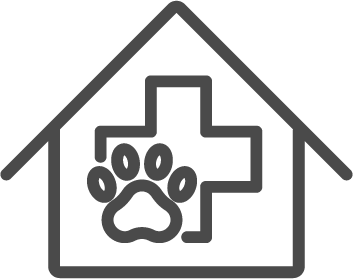Salmonellosis is a serious infection caused by the salmonella bacteria, and it can be fatal if sepsis develops due to the bacteria entering the bloodstream. Guinea pigs can contract salmonellosis from coming into contact with infected bedding material or ingesting contaminated food or water. The infection can also be spread from direct contact with infected guinea pigs, and if your guinea pig lives outside, they can contract the infection from mice or rats. Salmonellosis is classed as a zoonotic infection, which means there's the possibility of it spreading from animals to humans. You should bear this in mind when handling a guinea pig you suspect has this condition. Here's an overview of the symptoms, diagnosis and treatment approach for salmonellosis:
Symptoms
Guinea pigs with salmonellosis will experience loss of appetite, gastric upset and weight loss. The lymph nodes around their neck may be visibly swollen and they may experience inflammation in other parts of their body, such as their eyes and liver. Dehydration and fever are common symptoms of salmonellosis and may present in guinea pigs as lethargy and withdrawal from social interaction. Additionally, your guinea pig's coat may appear dull, which is a general sign of illness.
Diagnosis And Treatment Approach
Your vet will diagnose salmonellosis by taking details of your guinea pig's symptoms and carrying out a physical exam. Blood, urine and stool samples will be collected and analysed to confirm the strain of bacteria present. These tests can also be used to check organ health, rule out other conditions that cause similar symptoms and determine if your guinea pig is dehydrated.
Treatment of salmonellosis typically includes the use of a broad-spectrum antibiotic, and anti-inflammatories may be prescribed to help bring down swelling in the lymph nodes. Intravenous fluids and nutritional support may also be required if your guinea pig is dehydrated. Treatment will likely be administered on an inpatient basis until your guinea pig's symptoms improve.
When you take your guinea pig home, you should keep them separate from any other animals you have, as they can still be a carrier of the infection for a period of time after treatment as they continue to recover. It's also advisable to handle them with disposable gloves until your vet gives them the all clear at their follow-up appointment.
If you suspect your guinea pig has salmonellosis, schedule an appointment with your vet as soon as possible to prevent unnecessary suffering.

